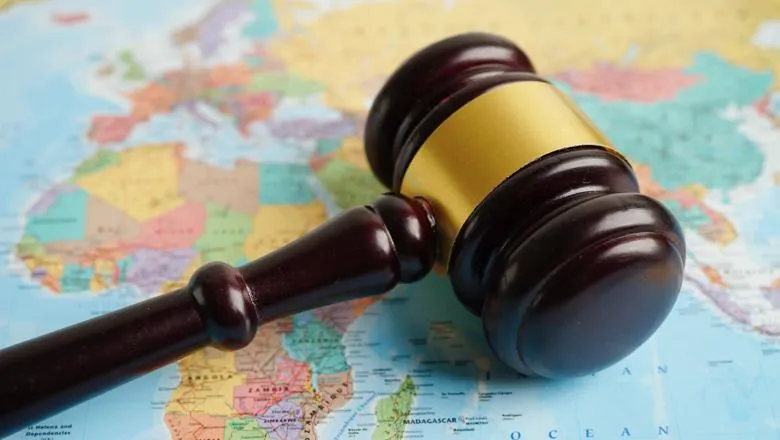Our research shows that geographers shape legal processes in a range of different areas, from environmental to social justice concerns. These contributions of geographers need to be celebrated, and institutions should do more to support those undertaking legal impact work.
Katherine Brickell, Professor of Urban Studies
15 February 2023
Geographers help shape laws around environment, social justice and human rights
New report spotlights the work geographers do as expert witnesses, legal consultants and advocates for marginalised communities.

A recent report highlights the invisible work of geographers in shaping law and legal proceedings, particularly in areas of environmental, social justice and human rights research.
Co-authored by Professor Katherine Brickell, from the Department of Geography, the report is a first step towards raising awareness of the important legal impact that geographers from all careers stage are creating through their work.
It finds that geographers are involved in legal sites, institutions and processes in three ways – as expert witnesses providing testimony in government inquiries, asylum cases and environmental litigation; as legal consultants commissioned by governments or civil society groups to do research; and in advocacy, working on behalf of marginalised groups to improve access to legal processes and ideas.
There were several motivations for getting involved in legal work. These included a sense of duty to share their subject expertise for wider benefit, a commitment to social justice, and psychological rewards of contributing positively.
However, several academic geographers reported not feeling supported by their institutions and colleagues since their legal work is often invisible. Legal work can also lead to physical and emotional exhaustion, especially since it is undertaken in addition to existing high workloads.
The report recommends creating mechanisms to recognise, incentivise and reward the legal work done by geographers. They also recommend more institutional support in the form of formal training in legal procedures, legal advice and protection, peer-to-peer mentoring, and psychological support.
Funded by the Royal Geographical Society (with the Institute of British Geographers), the study is based on surveys and interviews with academic geographers in the UK conducted between 2018 and 2022. It also analyses Impact Case Studies (ICS) submitted to the 2014 and 2021 Research Excellence Frameworks (REFs).
Professor Brickell co-authored the study along with Alex Jeffrey, Professor of Human Geography, University of Cambridge, and Fiona McConnell, Professor of Political Geography, University of Oxford.

